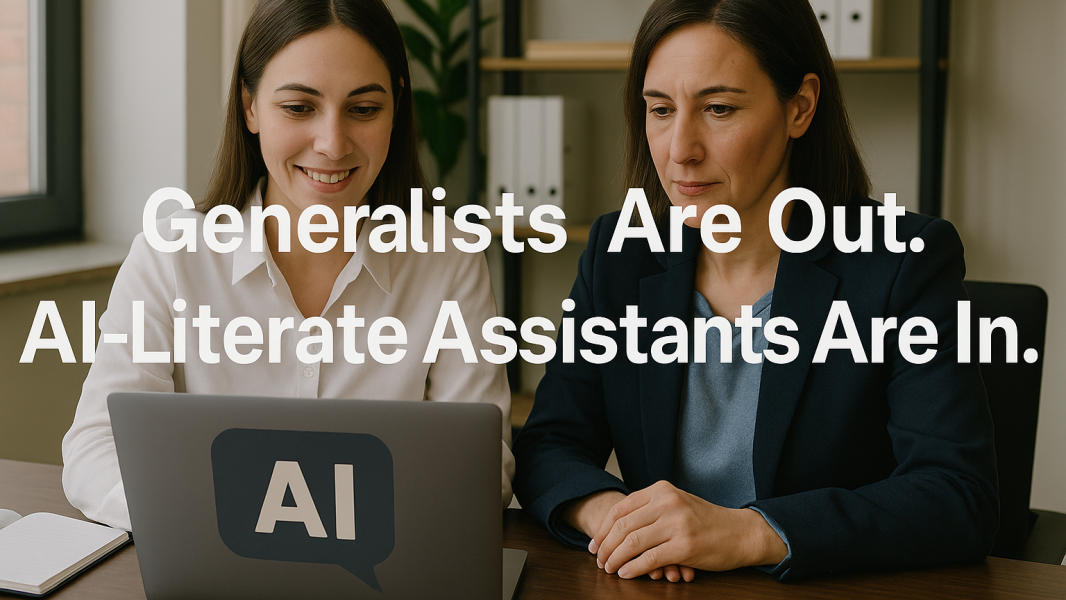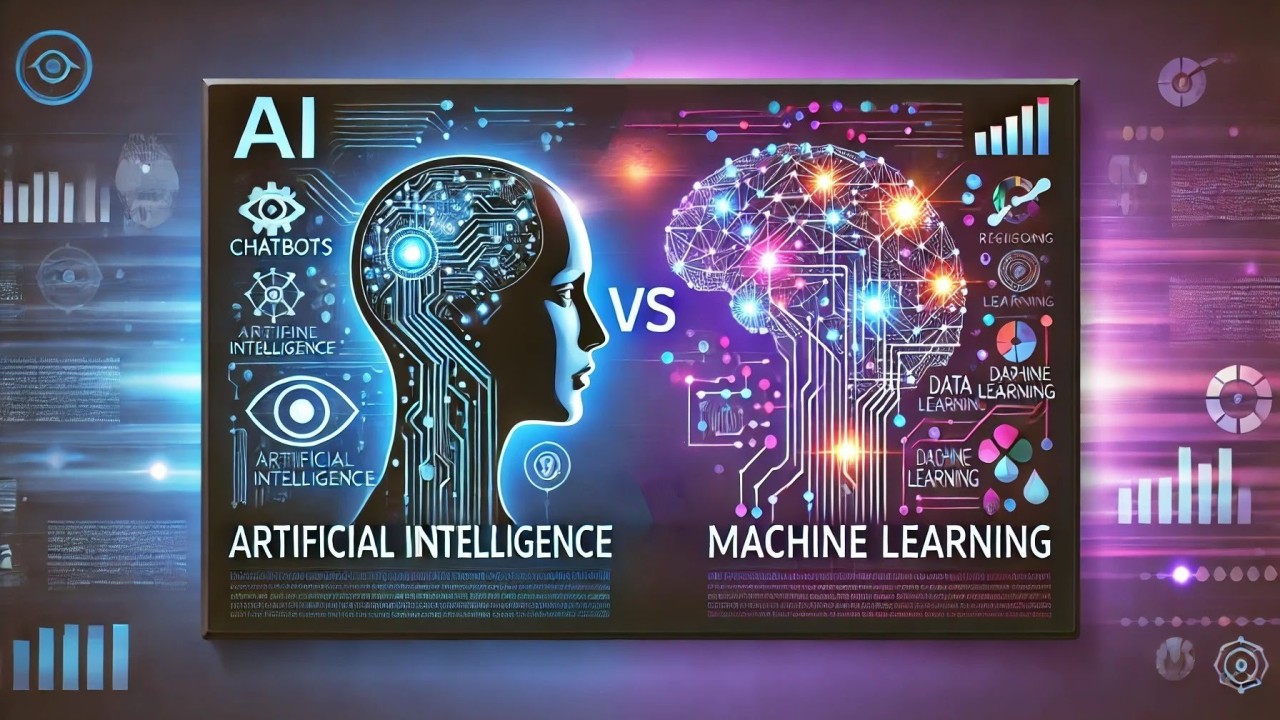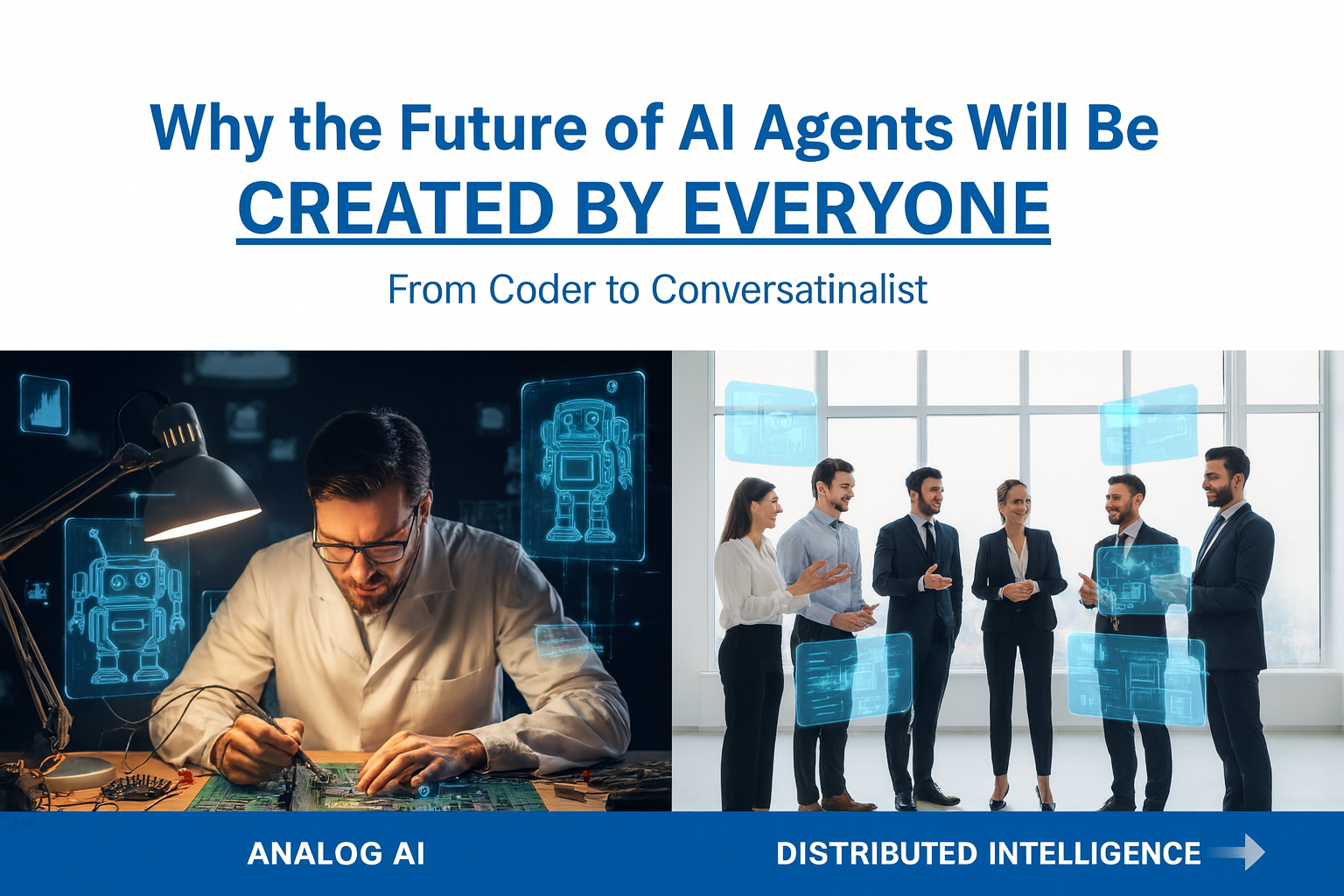

If your assistant can't help you move faster with AI, you're not delegating — you're compensating. Here's why the next generation of assistants must be AI-literate, not just organized.

I've worked long enough in AI and digital strategy to say this bluntly: if your assistant can't prompt tools like ChatGPT or other Generative AI solutions properly or doesn’t understand the basics of your domain, you're not delegating, you’re babysitting.
We’re entering a phase where generalists aren’t enough. Your assistant isn't just organizing your calendar—they're supposed to be multiplying your time. That means knowing how to:
Here’s the hard truth: if your assistant asks you how to structure every task, or worse, can’t use the tools you already master, you’ll spend more time explaining than doing.
The paradox of delegation The wrong assistant slows you down. Why? Because they lack the context. Imagine asking someone to research AI trends in manufacturing, and they give you a five-page printout from 2021 Forbes. Or worse, they don’t know where to start. You now have to redo their work or teach them step-by-step. And if you’re like me, you're already faster alone, especially with Generative AI sidekicks.
This isn’t a luxury—it’s a necessity I’m not advocating for perfection. But if your work involves complex tasks, digital tools, or any form of tech-enabled decision-making, your assistant needs to be an operator, not an admin. Someone who can Google like a pro, prompt with precision, and understand when the insight is surface-level vs. strategically valuable.
You wouldn’t hire a financial assistant who can’t read a balance sheet. Why hire a digital assistant who can’t use AI?
We now have an entire generation of tools that extend what one professional can do. But only if the human operator is fluent enough to guide them.
On a positive note: the best assistant might already be working for you. Many assistants have the intelligence, potential, and loyalty to become incredibly effective—if they’re given the chance. The solution is not always to replace, but to reskill. Offer training in prompt engineering, basic AI workflows, and your industry’s specific context. Investing in this kind of upskilling pays off faster than recruiting from scratch. And it fosters a stronger internal culture of adaptability.
The first wave of trained assistants matters even more. Choose them wisely. Pick those who show curiosity, embrace change, and can communicate clearly across levels. These are your future champions—the ones who will train the next generation of AI-ready assistants. Their mindset will shape the culture around this shift. Plan for it: at least 15% of their time should be explicitly reserved for mentoring and training others. That’s how you scale efficiency without losing quality.
That’s your assistant’s job. And if they’re not up to it, you’re not just wasting time, you’re wasting leverage.
I’d apply the same lens to entry-level roles: screen for adaptability, curiosity, and a baseline of digital literacy. Hire the people who show they can learn fast—and then give them something worth learning.
#DigitalTransformation #Productivity #FutureOfWork #WorkplaceEfficiency #GenerativeAI #PromptEngineering #Reskilling #TalentDevelopment
Expert analysis on data, cloud, and change management.

AI is the umbrella term, a field dedicated to creating machines that simulate human intelligence, and Machine Learning?

The old adage remains true—garbage in, garbage out. Without a strong data governance framework, the most advanced AI solutions will struggle to deliver the results businesses expect

The shift is massive: from coders to conversationists. Anyone in a company will soon be able to build their own AI assistant just by describing what they need. That’s the end of “Analog AI” — and the rise of Distributed Intelligence.
Expert guidance for seamless cloud and data transitions. Unlock value, ensure compliance, and lead with confidence.